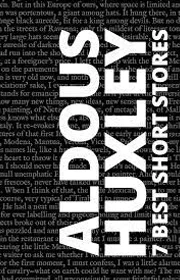
“A. Huxley’s Short Stories” by Aldous Huxley, is a compelling anthology exploring diverse facets of the human experience. Through thought-provoking narratives, Huxley delves into themes such as technological progress and human relationships, showcasing his distinctive literary style. Notable stories like “Brave New World Revisited” and “The Doors of Perception” contribute to a timeless collection that provides impactful insights into society and human nature. This anthology is a brief yet profound literary journey, inviting readers to reflect on the complexities of the world and the enduring relevance of Huxley’s work.
Read A. Huxley’s Short Stories Flipbook:
Listen to A. Huxley’s Short Stories Audiobook:
Title: A. Huxley’s Short Stories
Author: Aldous Huxley
Overview: “A. Huxley’s Short Stories” is a captivating collection of short stories by the renowned author Aldous Huxley. Each story offers a unique exploration of the human condition, blending Huxley’s insightful observations with his mastery of language.
Diverse Themes: The collection spans a wide range of themes, from the consequences of technological advancements to the complexities of human relationships. Huxley’s ability to tackle diverse subjects makes this compilation a rich and thought-provoking read.
Literary Style: Huxley’s distinctive literary style, characterized by wit and intellectual depth, is evident throughout the stories. Readers can expect a blend of social commentary, philosophical pondering, and a keen understanding of human nature.
Timeless Relevance: Despite being written in various periods, the stories remain relevant, addressing issues that resonate with readers across generations. Huxley’s foresight and exploration of timeless themes ensure the enduring appeal of these short stories.
Notable Stories: The collection includes some of Huxley’s most celebrated short stories, such as “Brave New World Revisited,” “The Doors of Perception,” and “After Many a Summer Dies the Swan.” Each story contributes to the overall tapestry of Huxley’s literary legacy.
Impactful Insights: Huxley’s narratives offer profound insights into the human psyche, society, and the consequences of unchecked progress. Readers will find themselves engaged in thought-provoking reflections long after finishing each story.
For Fans and New Readers Alike: Whether you’re a seasoned Huxley enthusiast or a newcomer to his work, “A. Huxley’s Short Stories” provides an accessible entry point into the author’s world. The collection serves as a compelling introduction to Huxley’s literary prowess.
Perfect for Thoughtful Reading: This book is ideal for readers who enjoy stories that go beyond mere entertainment, inviting them to contemplate the intricacies of the human experience. “A. Huxley’s Short Stories” is a literary journey that stimulates the mind and sparks meaningful conversations.